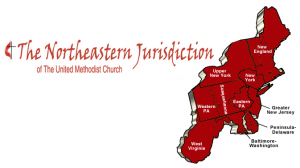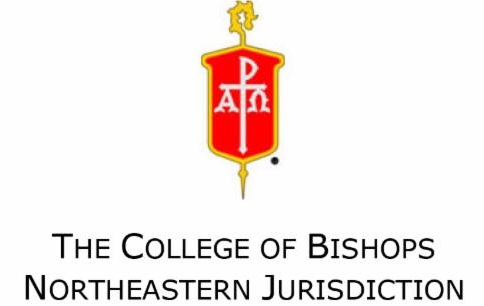The College of Bishops of The United Methodist Church’s Northeastern Jurisdiction issued a letter June 10 to all members addressing the end of church disaffiliations and policies related to “Same-Gender Weddings and Appointments of LGBTQ Pastors.” The letter, in response to many questions being received, confirms and clarifies “important changes for our church” made by the denomination’s postponed 2020 General Conference, held April 23 to May 3, 2024, in Charlotte, North Carolina.
 The bishops, particularly those who lead the jurisdiction’s 10 annual conferences, confirm that they will uphold the General Conference’s decision to delete immediately paragraph 2553 in the UMC’s Book of Discipline. That paragraph was added in 2019 to “provide a temporary path for congregations to disaffiliate” through the end of 2023, as a conscientious response to legislation related to ministry involving LGBTQ persons.
The bishops, particularly those who lead the jurisdiction’s 10 annual conferences, confirm that they will uphold the General Conference’s decision to delete immediately paragraph 2553 in the UMC’s Book of Discipline. That paragraph was added in 2019 to “provide a temporary path for congregations to disaffiliate” through the end of 2023, as a conscientious response to legislation related to ministry involving LGBTQ persons.
The bishops report that as many as 25 percent of United Methodist congregations chose this path. But they state, in keeping with the General Conference’s decision, that they “will NOT support any more disaffiliations,” including any attempted but invalid use of other disciplinary paragraphs for disaffiliation. “The United Methodist Church is moving forward,” they write, “as a church that embraces theological diversity.”
Same-gender weddings and appointments of LGBTQ pastors
Regarding other General Conference actions, the letter seeks to correct misinformation from “the Global Methodist Church and other non-UMC groups” alleging that “United Methodist clergy will now be forced to perform same-gender weddings, and that our congregations will be required to permit same-gender weddings. This is NOT true.”
In fact, they contend, the new legislation “prevents district superintendents and bishops from penalizing pastors and churches that refuse to perform or allow a same-gender wedding on their property.
 “No clergy will be forced to perform same-gender weddings,” the letter states, “and no congregation will be required to permit same-gender weddings on their premises. Clergy and congregations are now entrusted to make these decisions gracefully, considering their ministry context based on their beliefs and attitudes regarding ministry with and by LGBTQ persons.”
“No clergy will be forced to perform same-gender weddings,” the letter states, “and no congregation will be required to permit same-gender weddings on their premises. Clergy and congregations are now entrusted to make these decisions gracefully, considering their ministry context based on their beliefs and attitudes regarding ministry with and by LGBTQ persons.”
Regarding pastoral appointments to churches, the letter adds, “We will make appointments based on gifts, graces, experience, commitments, and theological alignment between congregations and clergy.”
The College of Bishops state that they will assist congregations in understanding changes made by the General Conference regarding human sexuality, church wedding policies and pastoral appointments. To do so, they will commission a team of theologically diverse clergy and laity to create a resource by September 1 that can support “a healthy process to (re)build relationships, listen to learn and reflect theologically on this matter from our distinctive Wesleyan perspective, so congregations can discern how to move forward.”
No clergy or laity will be asked to change their beliefs, the bishops state.
The letter celebrates other important decisions made by the General Conference, including “the proposal for a new regional structure for our denomination, the fully revised social principles, a renewed commitment to creation care, sacramental rights for deacons, the consecration of new missionaries, and the historic vote to reunite and establish full communion with Episcopalians…”
“The United Methodist Church is moving forward as a diverse worldwide Christian community that welcomes people from all walks of life,” the bishops write.

